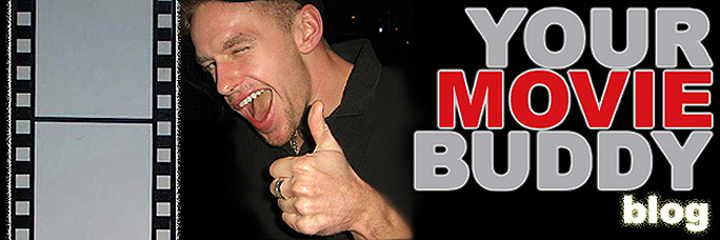Atonement (4.5 stars out of 5)
As I begin this review, it's impossible not to hear Dario Marianelli's instantly classic score ticking away in the background. Cleverly infused with the keystrokes of a typewriter, the music is but one of the many elements that make Atonement this year's sweetest gift to the senses. Directed by Joe Wright (2005's Pride & Prejudice) and adapted by Christopher Hampton from Ian McEwan's best-selling novel, the film, from all technical and cinematic standpoints, is a stunning work of art. The first act alone, in which an unspoken desire is consummated and a confused witness sets the plot in motion, is Best Picture material. Had the flow not been interrupted by a crucial, yet semi-obtrusive middle chapter, I'd be calling this the best movie of 2007.
 Atonement is being sold as a sweeping romance between the characters portrayed by Keira Knightley and James McAvoy (both fine in their roles, with the latter showing promise miles away from Narnia). That it is, indeed, but the kicker is that the story is really about the young girl who tears their love apart. The title refers to her own quest to make amends, shown eating away at her in three stages of her life. The three actresses that embody these stages give the film's standout performances, most notably newcomer Saorsie Ronan as the youngest incarnation. Her bright blue eyes and what they see (or don't see) act as a catalyst toward the road the film will follow, and in a dual-perspective approach, we get to view the action both through them and as it truly occurs. Paired with Marianelli's composition, Paul Tothill's editing makes such instances not gimmicky, but slick and vital; and in lesser scenes as simple as a character dressing for a dinner party, the cuts are as crisp as the suit being donned. This is classy filmmaking, with every aspect of cinematic production utilized to its utmost, beautiful potential.
Atonement is being sold as a sweeping romance between the characters portrayed by Keira Knightley and James McAvoy (both fine in their roles, with the latter showing promise miles away from Narnia). That it is, indeed, but the kicker is that the story is really about the young girl who tears their love apart. The title refers to her own quest to make amends, shown eating away at her in three stages of her life. The three actresses that embody these stages give the film's standout performances, most notably newcomer Saorsie Ronan as the youngest incarnation. Her bright blue eyes and what they see (or don't see) act as a catalyst toward the road the film will follow, and in a dual-perspective approach, we get to view the action both through them and as it truly occurs. Paired with Marianelli's composition, Paul Tothill's editing makes such instances not gimmicky, but slick and vital; and in lesser scenes as simple as a character dressing for a dinner party, the cuts are as crisp as the suit being donned. This is classy filmmaking, with every aspect of cinematic production utilized to its utmost, beautiful potential.The girl's actions ultimately send one lover to war and leave the other to wait, and within this unwelcome shift in tone lies the film's only weakness. All the events that build up to said point take place on a well-to-do estate in 1930's England, and are captured with the soft glow of Seamus McGarvey's lush cinematography. While the separation and the invasion of a very real World War II are key components to the story, their part in the film (save for one ambitious and expansively long take) feels like an invasion in itself. When night falls on an estranged and war-ravaged McAvoy, there is a deep and almost painful longing for the exquisite style that reeled us in. It does return, and while one could argue such longing is precisely the point, a movie with this much elegance and vivacity deserved a smoother transition. When the final twist (which favors shock value over a hefty emotional pull) ties a neat little bow on the journey we've taken and sails us through picturesque scenery, my only wish was that it could have done so throughout.
*Oscar Alert: I mentioned more behind-the-scenes names here than I normally ever do in a critique. That's because I want to familiarize myself with them. Come January, it's likely all of them will be announced for Academy Awards competition, along with a few others. Nominations for Picture, Director, Cinematography, Original Score, Adapted Screenplay, Costume Design, Art Direction, Editing, and Sound all seem sure bets for Atonement, the lavish epic I've been waiting for.


No comments:
Post a Comment